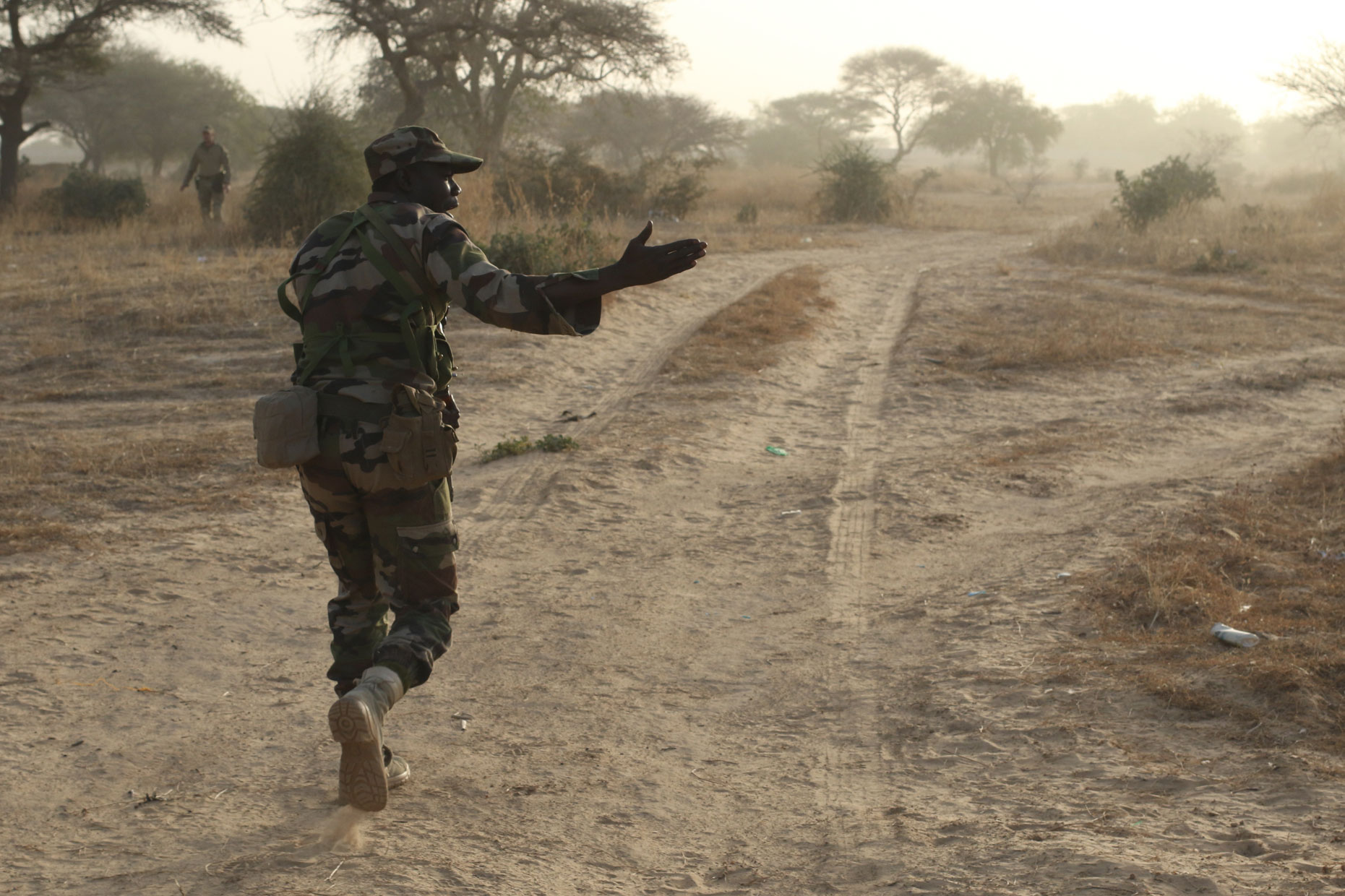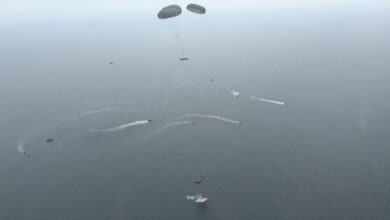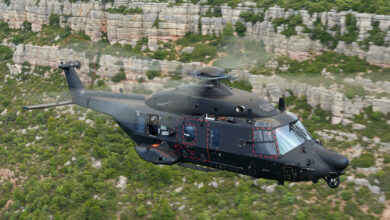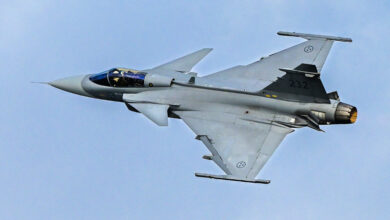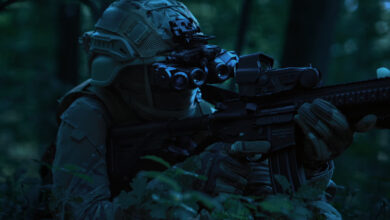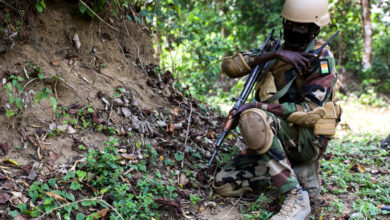A joint operation conducted by Niger’s armed forces and troops deployed to the France-led Operation Barkhane “neutralized” 120 “terrorists” and seized bomb-making equipment and vehicles in western Niger, the defense ministry said on Friday, February 22, AFP reported.
As of February 20, “120 terrorists” had been “neutralized, including 23 in the Inatès-Tongo Tongo-Tilloa triangle” in the expansive Tillaberi region near the border with Mali and Burkina Faso, a Niger defense ministry statement read on public radio said, adding there had been no losses “on the friends’ side” during the operation.
“Ten motorcycles and various equipment used for the production of improvised explosive devices and for observation” were seized and destroyed.
Niger’s defence minister Issoufou Katambé praised the “cooperation with the strategic partner in the fight against terrorism” alongside the Armed Forces of Niger (FAN), the statement said, adding that the joint operation “is in line with the recommendations of the Pau Summit of January 13.”
The French Armed Forces Ministry has not yet released a statement regarding the operation.
At the Pau summit, France and the G5 Sahel states – Burkina Faso, Mali, Niger, Chad and Mauritania – injected new urgency into the counter-terrorism fight in the vast sub-Saharan region, announcing a new Sahel Coalition that will increase coordination between French and local forces. Troops from Operation Barkhane and the regional G5 Sahel Joint Force (FCG5S) operating under joint command will focus on the Mali-Burkina Faso-Niger tri-border zone, targeting Islamic State as a priority.
Barkhane is already building command coordination with Sahel Coalition partner forces, setting up dedicated coordination mechanisms in Niger’s capital Niamey and Chad’s capital N’Djamena, where Barkhane is headquartered.
“Exchanges of officers between the two forces have been carried out and joint planning is already advanced,” the FCG5S commander, Niger’s Brigadier General Oumarou Namata said this week.
“Officers from the Burkinabé, Malian and Nigerien general staffs have also been associated to harmonise actions with the national forces involved,” Namata said.
Increasing violence in western Niger
One of the world’s poorest countries, Niger lies in the heart of the fragile Sahel region.
Niger faces insurgency on two fronts: the southeastern Diffa region near Lake Chad is increasingly frequently hit by Nigeria-based Islamic State West Africa Province insurgents, while militants based in Mali, including ISIS and al-Qaeda-affiliated fighters, are active in the west of the country near the borders with Mali and Burkina Faso.
Authorities in the western Tillaberi region have ramped up security restrictions, closing markets and banning motorbike traffic after militant attacks in December and January killed 174 Nigerien soldiers.
A state of emergency has been in place in the region for the past two years.
In January, an Islamic State attack on Chinagodrar camp in the east of the Tillaberi region left at least 89 dead, the biggest single loss in the country’s modern history.
That attack occurred around 180 km east of Inates, where 71 Niger soldiers were killed in a December attack also claimed by Islamic State that saw dozens of insurgents storm a military camp near the border with Mali. It was then the deadliest attack on Niger’s military since Islamist extremist violence began to spill over from neighboring Mali in 2015.
Last May, 28 Niger soldiers were killed in Balley Béri, near Tongo Tongo in an ambush later claimed by ISIS.
A month later, the joint Operation Aconit was conducted by Barkhane, Mali and Niger troops and targeted ISIS-affiliated fighters on both sides of the border. In Niger, 18 “terrorists” were “neutralized” and five others captured in the Tongo Tongo area.
Islamist insurgents in the Sahel
The complex insurgency in the Sahel began in Mali in 2012, when a Tuareg separatist uprising was exploited by al-Qaeda-linked extremists who took key cities in the desert north. Former colonial power France began its Operation Serval military intervention the following year, driving the jihadists from the towns.
But the militant groups morphed into more nimble formations operating in rural areas, and the insurgency gradually spread to central and southern regions of Mali and then into Burkina Faso and Niger.
More than 4,000 people were reported killed in militant attacks in the three countries last year, according to the U.N., and Secretary-General Antonio Guterres has warned that the spiraling violence in the Sahel has spread to coastal states of West Africa.
Many armed groups including Islamic State are active in the Sahel region, but the majority of attacks are attributed to JNIM, which formed in March 2017 from a merger of several smaller groups. JNIM’s leadership has pledged allegiance to al-Qaeda leader Ayman al-Zawahiri.
Since May 2019, ISIS has attributed insurgent activities in the Sahel area to ISWAP, its West Africa Province affiliate that split from Boko Haram in 2016, rather than to Islamic State in the Greater Sahara. ISWAP’s main area of operations is the Lake Chad area of Nigeria, Niger, Chad and Cameroon.
Macron has said the Sahel Coalition would prioritize the fight against ISIS in the Mali-Burkina Faso-Niger tri-border area because it is the most dangerous.
Growing French presence in the Sahel
The French military presence in the Sahel began in 2013 with Operation Serval in Mali, and evolved in August 2014 into Operation Barkhane, which has a mandate for counter-terrorism operations across the region. The Barkhane force focuses activity in insurgent-hit Mali, Niger and Burkina Faso, working alongside local troops and other international operations, including the FCG5S and MINUSMA, the U.N. stabilization mission in Mali.
Earlier this month, Armed Forces Minister Florence Parly said that the number of French troops deployed to the Sahel would increase from 4,500 to 5,100.
Mali has launched Operation Maliko, a new counter-terrorism operation that will take into account cross-border, regional and international cooperation.
France has also been trying to build support for the new special operations Task Force Takuba that will train, advise, assist and accompany local forces in their fight against Islamic State and al-Qaeda affiliates in the region. Takuba will declare initial military capability in the summer and will be fully operational by the autumn.
France hopes that Takuba will comprise around 500 special forces personnel, according to Le Monde. The new French deployment will include around 50 special forces personnel who will form the nucleus of Takuba, Le Monde reported.
So far, Estonia, the Czech Republic, and Sweden have announced plans to contribute to Takuba, and discussions with Finland and Norway are reportedly ongoing, but Germany and the U.S. have declined.
Belgium is to contribute three staff officers to Takuba according to the Belga news agency, but the current caretaker government’s Foreign Minister Philippe Goffin told AFP on February 13 that committing troops to such an operation would require a government with a full mandate, plus the approval of parliament.
Barkhane already has an international dimension, with European partners contributing troops and equipment. Estonia is to almost double the size of its force protection contingent this year, Denmark has deployed two Merlin helicopters, and three Chinook helicopters from the United Kingdom currently support the operation.
With reporting from AFP

